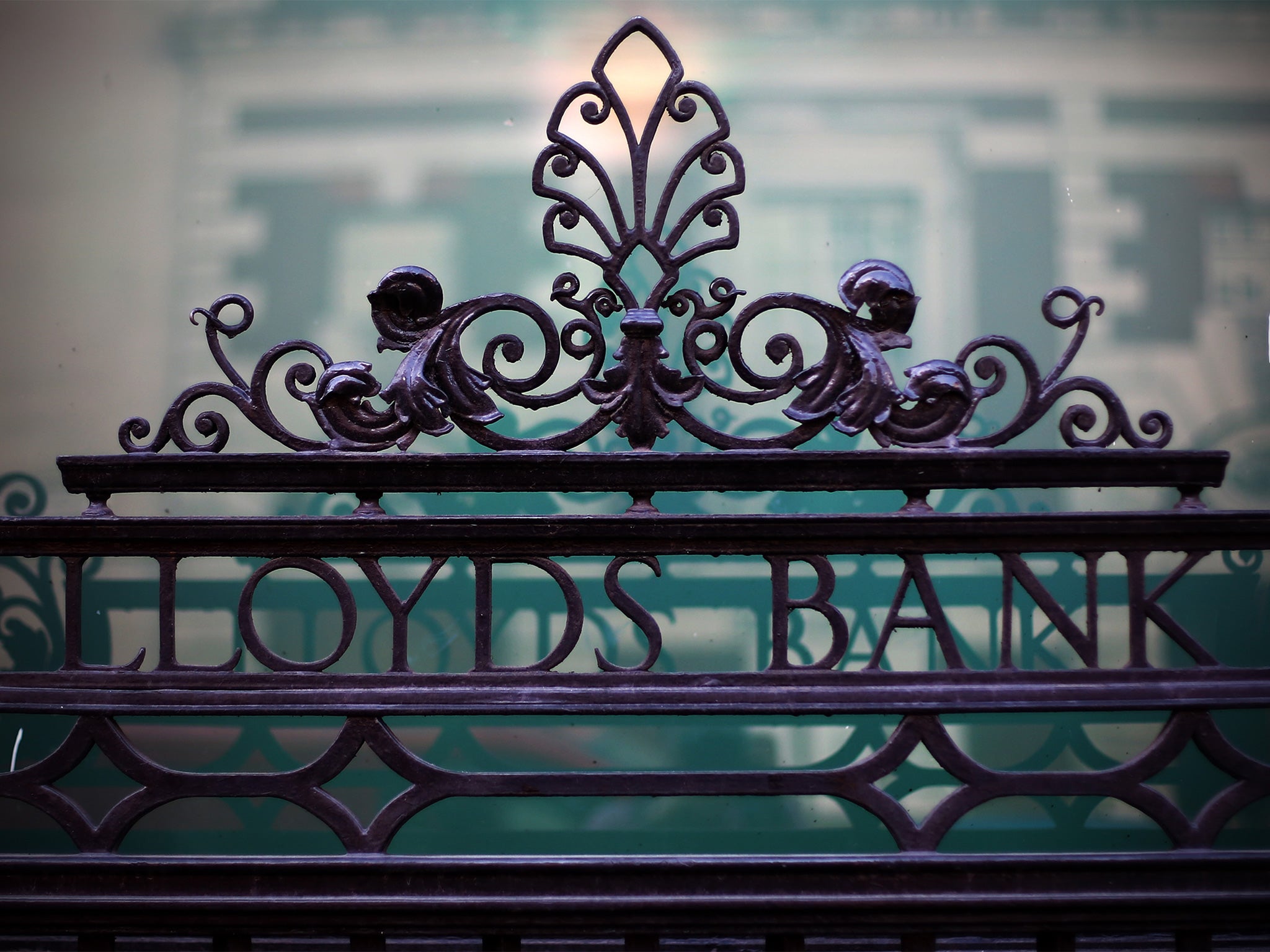Black Horse Ride: The Inside Story of Lloyds and the Banking Crisis by Ivan Fallon - book review
Public rage and a tragic fall at Lloyds

Your support helps us to tell the story
From reproductive rights to climate change to Big Tech, The Independent is on the ground when the story is developing. Whether it's investigating the financials of Elon Musk's pro-Trump PAC or producing our latest documentary, 'The A Word', which shines a light on the American women fighting for reproductive rights, we know how important it is to parse out the facts from the messaging.
At such a critical moment in US history, we need reporters on the ground. Your donation allows us to keep sending journalists to speak to both sides of the story.
The Independent is trusted by Americans across the entire political spectrum. And unlike many other quality news outlets, we choose not to lock Americans out of our reporting and analysis with paywalls. We believe quality journalism should be available to everyone, paid for by those who can afford it.
Your support makes all the difference.The global financial crisis was not just a failure of banking but of journalism, too – with the media in the dock for failing to warn an unsuspecting public of impending disaster. As a news editor might put it, “we screwed up”.
However, there are plenty of revelations still to be made by those prepared to sift through the debris as this book demonstrates – forensically detailing the disastrous merger in 2008/09 between the staid and respectable Lloyds Bank and its brasher rival Halifax Bank of Scotland (HBOS).
The author’s skills are well tailored to the job. As a former Business Editor ofThe Sunday Times (which, under that newspaper’s editor Harold Evans, set the standard for modern business reporting) Fallon adopts its mantra that financial writing should be just as exciting and accessible as any other form of journalism.
Thus, Black Horse Ride (as its racy title suggests) is not an economics manual about derivatives or collateralised securities or failed business models – although there is plenty here for students of such matters. Rather it is a dramatic human tale of psychological frailty, misjudgement, clashing ambition and hubris that happens to take place against a background of City finance and high politics.
The story begins amid the market mayhem following the collapse in September 2008 of Lehman Brothers, one of Wall Street’s biggest and oldest banks, sending shockwaves round the world. In Britain, HBOS, with assets bigger than the UK’s entire GDP, teetered on the brink of bankruptcy, and its collapse would have triggered economic meltdown, as well as political catastrophe for Gordon Brown’s Labour government.
A rescue was hastily furnished by Lloyds – better known for old-school probity rather than risk-taking – after a controversial cocktail party conversation between Brown and his friend, the Lloyds chairman and City grandee, Sir Victor Blank, which allegedly forced the two banks into a shotgun marriage. At first feted by the City and politicians alike, the deal soon started to unravel.
The HBOS books, it turned out, were riddled with risky loans and dodgy investments, some of which had to be written down to nothing. Huge chunks of Lloyds shareholder value were wiped out – with the group ending up partly in the hands of the taxpayer. As the public and political mood against banking and bankers became ever toxic, Blank was forced out of his job and cast into the wilderness.
But readers expecting to indulge in yet another orgy of Schadenfreude will be disappointed. Fallon eschews the vogue for banker bashing, arguing in defence of the Lloyds deal. And he offers evidence to debunk the story – still widely believed – that the Prime Minister twisted the arm of his banker buddy to engineer the fatal transaction. (Blank, along with his CEO Eric Daniels, had apparently for some time been eyeing up a merger as way out of the doldrums for Lloyds.)
Fallon writes with a novelist’s eye for detail and a dramatist’s sense of pace, and there are some delicious vignettes throughout the book, especially the blow-by-blow account of a tense meeting at the Treasury, where Chancellor Alistair Darling eyeballs the fractious bank CEOs warning them that if they don’t accept his £500bn rescue package, the whole British economy will topple next day.
But at the heart of the narrative is the story of the tragic fall of Victor Blank, the shrewd, generous, clubbable and highly regarded lawyer, the grandson of Jewish immigrants from Ukraine, with his self-avowed “Fiddler on the Roof story” from rags to riches. The tale of how this “elegant and courteous” man with his “rumpled face that can’t hide emotion” became a victim of public rage against bankers is poignant indeed.
For those who lived through it, the banking crisis was a “nightmarish experience they would not want to repeat”, Fallon concludes. But he remains sanguine, asserting that “if Lloyds had decided to abandon HBOS to its fate, it could well have fallen over. Lloyds did the deal, it survived.” In the long-term history of the bank, he says, the events of that period may be no more than a hiccup.
But this will be paltry compensation for the unfortunate Chairman Blank, who was unjustly thrown to the wolves. “In every marriage, there is a fucker and a fuckee,” one leading bank chief was fond of saying about mergers. In this often-crude world of investment banking, Blank found himself on the wrong side of the relationship.
Michael Williams is co-author of ‘The Future of Quality News Journalism’, published by Routledge, 2014
Join our commenting forum
Join thought-provoking conversations, follow other Independent readers and see their replies
Comments